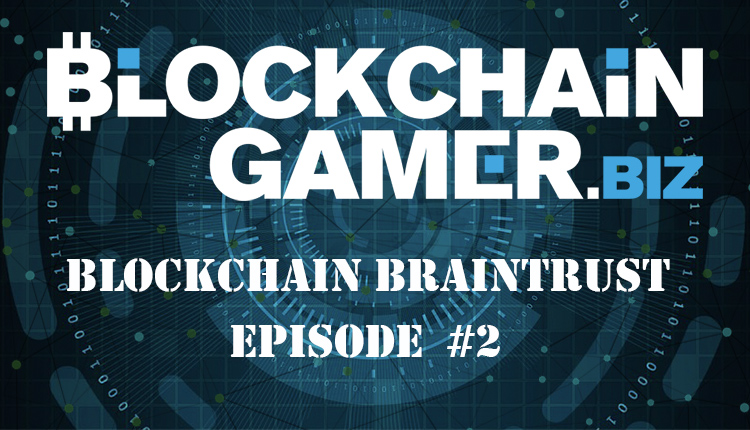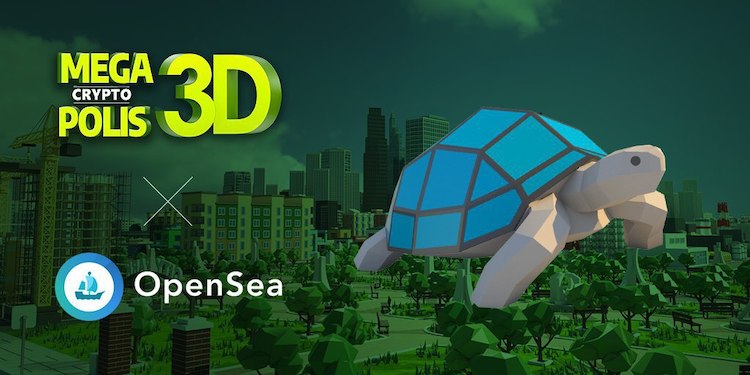Blockchain Braintrust – fighting out for funding
We delve into the world of fundraising in this episode of blockchain braintrust

On Blockchain Braintrust, we look at the challenges of raising funds for a blockchain game, and what the experts think.
Taking an idea from some kind of blueprint to place it in front of investors is an uphill struggle. If securing seed capital is a challenge for mainstream games, it gets to be far more complicated with blockchain.
This brings up a range of questions about what sort of funding can work for a blockchain title. Whether this is an Initial Coin Offering (ICO), Exchange Offering (IEO), or alternative methods. Clearly, a one size fits all approach isn’t at play here, as we’ve seen companies make use of Item pre-sales to varying effect.
But with these outside the box approaches, is the more conventional method one that can work? We take the time to speak to members of the blockchain gaming world to get their thoughts.
Minimum Viable Product – Getting Started
The most reliable way of raising funds is to use your own money.
For Stephen Arnold of Fracture Labs, a blockchain game has to be able to fly on its own, initially. Any project can then take this initial system to kick-start their fundraising.
“The most reliable way of raising funds is to use your own money, ask friends and family to help, then use this money to develop your minimum viable product to pitch to investors and publishers, in exchange for equity in the company.”
While these make up the first steps, how can a project move from these early days to a viable model that users will want to fund?
For a game, making a valuable asset that users want to buy up means bringing its in-game value to the forefront right? According to the MegaCryptoPolis, this is very much the case.
“We believe that the only way fundraising in the form of initial offering can be successful for the game is making it the part of gameplay. Normally games intend to be entertaining products, so why not to bring fun from the very early stages?”
It’s a very good point, having very immediate utility attached to tokens and assets means that players can cash in on their investment. Meanwhile, developers can roll together both the need for investment and player engagement.
Initials – Item, Coin or Exchange?
I still believe ICO's are a revolutionary way to raise money... But unfortunately many investors were scammed and this has left a bad taste for ICOs
2017 was the market for Initial Coin Offerings, with that being the boom year for blockchain game projects. But with the frost-laden year of 2018 and an increasingly sceptical 2019, ICO’s simply cannot work in the same way.
“Buy the end of 2017 $6Bn had been invested in ICO’s, for start-up companies it was like raising an ‘A’ round on steroids.” Tony Pearce, Co-founder of Reality Clash has a great deal of experience with ICOs. Having managed to raise its funds from an ICO, but this was from the wild west of 2017, not now.
“More investors were piling into ICO’s but in most cases, these investors had no real understanding on what the companies were doing and did not even speak to the founders and more importantly no regulations were in place to protect investors.”
This has been enough for scammers to enter the ecosystem, leading to a number of exit scams. With enough of these fraudulent projects leaving more than a sour taste in the mouths of investors.
“I still believe ICO’s are a revolutionary way to raise money and where investors did their due diligence properly they will start to see an increase in their token value and make a profit. But unfortunately many investors were scammed and this has left a bad taste for ICO’s.”
Item Offerings

For the MegaCryptoPolis team, the alternative was selling digital assets / NFTs. This was an easy thing for the team to accomplish with its underlying game mechanics requiring stakes in the game.
“We started from the very basic 2D prototype that allowed players to acquire land plots on the decentralized city map, yet it was already a part of the bigger game involving construction and management of a building. That helped us much in achieving the proof-of-concept, building a community as well as aggregating some additional funds for further development.”
The end result? A lot of progress in achieving community engagement along with raising necessary funds for the game. Especially now with it moving into a new layer of its NFT economy.
“That helped us much in achieving the proof-of-concept, building a community as well as aggregating some additional funds for further development. Most importantly, that story can be endless with every stage being a fundraising event for the next milestone, that can be even more complicated and engaging.”
“The ICO is dead, long live the IEO!”
With a sceptical approach towards Initial Coin Offerings, Arnold explains that it simply makes no sense to dive into that kind of fundraising approach.
“Doing an ICO in this day and age is futile because nobody wants to buy tokens that have no guarantee of listing on exchanges, or buy from companies that might disappear into the dark web with your BTC.”
So, with ICOs providing little in the way of safeguarding for investors, is this where IEO’s can be the best approach? From making sure due diligence is being done for exchanges and investors – quite possibly, according to Pearce.
“The next most popular fundraising scheme is now an IEO (Initial Exchange Offering). The main difference between an ICO and IEO is (as the name suggests) the IEO is offered via an exchange.” Pearce continues to explain what separates a coin from an exchange offering.
“However, the exchange will only offer an IEO once it has fully done its own due diligence on the company or product. Unlike ICOs where the company directly approached investors IEOs involve a third party in the form of a crypto exchange.”
The fact that there’s far more due diligence for an IEO does make it appear to be an ideal fundraising solution. One of the disadvantages of this method is the fact that it’s very much in its infancy.
Between Item sales and exchange offerings, what are your thoughts on fundraising? Let us know!
And continue the discussion in our Telegram group and don’t forget to follow BlockchainGamer.biz on Twitter, Facebook, YouTube, and now on Discord!


